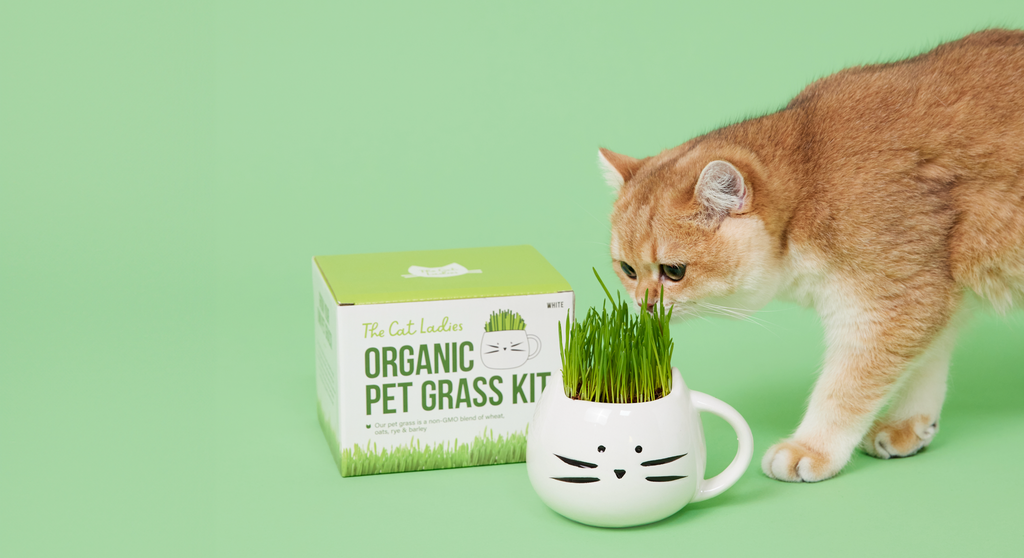
The Love Affair Between Cats and Grassy Greens
Share
Cats are famously independent. Mysterious. Selective. And yet, across breeds, ages, and personalities, there’s one thing many of them agree on: grass is irresistible.
If you’ve ever caught your cat eyeing a houseplant or nibbling something green outdoors, you’re not imagining it. Cats are instinctively drawn to grass, and for good reason. What looks like a simple snack is actually doing some very important work behind the scenes.
For indoor cats especially, access to fresh greens is a small choice that can make a meaningful difference to their health and happiness.
Why Grass Is Part of a Cat’s Natural Routine
While cats are obligate carnivores, wild and feral cats don’t live on meat alone. Alongside prey like rodents and birds, they naturally ingest small amounts of plant matter. This vegetation provides nutrients and functional benefits that a strictly meat-based diet can lack.
Grass contains trace minerals, micronutrients, folic acid, and vitamins A, B, and D. These nutrients vary depending on how and where the grass is grown, but together they support overall wellbeing, especially for cats living exclusively indoors.
Even well-fed cats benefit from access to grass. It’s less about hunger and more about instinct.
The Role of Chlorophyll
One of the key reasons cats seek out grass is chlorophyll. This naturally occurring pigment is known for its cleansing and deodorizing properties and plays a role in supporting oral and digestive health.
Cats are remarkably intuitive. When their bodies need a reset, they often turn to chlorophyll-rich greens to help balance things out. This can contribute to fresher breath, healthier digestion, and a more comfortable gut.
Digestion, Hairballs, and Why Grass Matters
Cats that regularly nibble on grass often experience more regular digestion, fewer hairballs, and less constipation. Plant fiber helps move things along gently, supporting elimination and reducing buildup in the digestive tract.
It’s also normal for cats to vomit shortly after eating grass. While this can be alarming, it’s typically part of a natural cleansing response. Cats lack the enzymes to digest large amounts of plant material, so vomiting can help clear fur, feathers, parasites, and other irritants from the stomach.
In moderation, this behavior is both common and purposeful.
A Safer Alternative for Indoor Cats
Indoor cats without access to safe greens often redirect their instincts toward houseplants, many of which can be toxic. Providing cat-safe grass gives them a dedicated, healthy outlet and helps protect both your plants and your cat.
A patch of fresh grass acts as a decoy, a digestive aid, and a source of enrichment all at once.

Why Cats Love the Taste
Cats have around 470 taste buds, compared to the human average of over 9,000. They also share a genetic mutation that prevents them from tasting sweetness. Instead, their taste receptors respond more strongly to amino acids and bitter flavors.
Grass hits that sensory sweet spot. The texture, bitterness, and scent all appeal to a cat’s natural preferences, making grazing feel instinctively right.
Why Your Cat Needs Cat Grass
Adding cat grass to your home is a simple, low-effort way to support your cat’s physical and mental wellbeing. It aids digestion, helps manage hairballs, satisfies natural instincts, and adds a touch of green to your space.
More importantly, it gives your cat agency. A choice they’d make for themselves, if they could.
Because sometimes, love looks like letting them munch a little grass in the sun.
Explore The Cat Ladies' Cat Grass Collection
